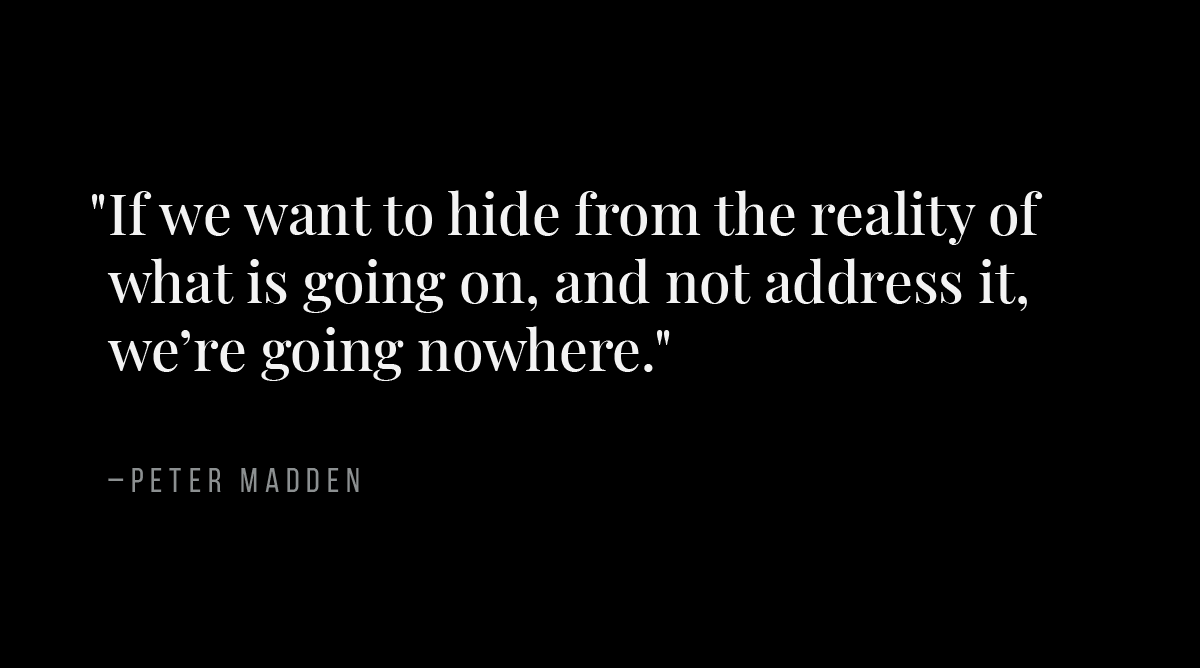#RelationshipGoals


This article was featured in the online version of the Philadelphia Business Journal on June 1, 2020.
Oh, you know we’ve got to find a way.
To bring some understanding here today.
– Marvin Gaye, What’s Going On
In the mid and late 80’s, I attended a high school in New Jersey that was a true melting pot. Kids from all kinds of backgrounds. I was fortunate to go to this school because it was renowned for their music program. At the time, I had already been deeply ensconced in playing the drums since the age of 7. It started with a toy set, and then I graduated to weekly lessons.
As these lessons continued, my parents bought me a rubber practice pad. They advised that if I studied hard and stuck with my lessons, in a year, they would buy me a snare drum. So I did. And then graduated from that to a drum set. So to attend a high school that had such a deep music program, razor sharp instructors, and a premium on discipline when it came to performance, it was a haven. In some ways, music saved my life.
The music room is a fantastic place to hide from bullies. I would just sit in there and perform with new friends, and whatever their skin color was — it was. Drums, especially, are akin to a physical meditation. Until the bell would ring, and I would be back in the mix, looking over both shoulders in the hallways. Hoping that I wouldn’t be noticed by the wrong person who would gladly eat me for breakfast.
When not practicing paradiddles and flams, I invested big time in my passion for basketball, though — trust me — my love for the game wasn’t proportionate to my height. I was thrilled to make the team and always looked forward to practice and especially, games. Those uniforms were crisp! What made my time on the basketball team interesting was that I was the minority. A white face in a sea of brown and black. And these were my first friends in high school. The kids who had my back and protected me in the halls. We bounced around in a yellow bus on the way to games, laughing, and making fun of each other’s clothes, hair, whatever was ripe for picking. It’s how boys bond, especially at age 14. I belonged. True happiness.
And during the season, there was a particular practice after school, and I saw something I’ll never forget. One of our better players on the team — for whatever reason — had a basketball thrown like a fastball off of his head from close range with such force that it literally landed on the other side of the court. Followed by a string of obscenities. He was knocked to the floor and I couldn’t believe he was even able to get up.
The deliverer of the thrown basketball? Our white coach.
It was the first time I had seen up close what racism really is. I can say that without a doubt, whatever this young man did, if I had done the same, not a thing would have happened. Because I was white – just like the coach.
I wanted to yell at the monster, report him, anything. I’m sure everyone on the team did. But we just went on to the next drill. After practice, I went up to my teammate to ask him if he was alright. He just shrugged. His expression said, “this is nothing new, and you’ll never get it anyway, trust me.”
How was right then and he is still right today.
I believe that this 20-second incident has stuck with me my whole life. I hope seeing that terrible scene up close has driven decisions I’ve made, how I am in my personal and business life, and how I treat people. Not white people. Or better off people. Or important people. Everyone. Every. Single. Person. Always.
Speaking of important people in my life, near the top of that particular list are the kids from La Salle Academy in West Kensington, a school started by my friend and mentor Jim Lynch, lead fearlessly by Sister Jeanne McGowan (whose energy might only be equaled by The Rock). The kids La Salle serves – a melting pot that reminded me of my high school days – are truly the poorest of the poor in our city. And the first time Jim took me to meet them, I walked into the door, and they walked into my heart.
After that, I would have different classes from La Salle come to AgileCat and I would hug them and high five them. We’d talk about failing and getting up again. What scared us. What made us happy. Who they wanted to be when they grew up. I even hosted famed Eagle Brian Westbrook to give them a talk (thanks Cindy Webster!). We even tried some meditation. The best parts were the Q&A sessions, which made me laugh out loud. Did I know Beyoncé? Um, not exactly but could you introduce me if you do, kids?
One answer I’ll never forget was to a question I asked the fifth grade class. It was their first visit to my office. “What did you think when you came down here?” I queried. My ego waited for all kinds of great answers – the big shiny building, the hustle and bustle of the lobby; the sharp suits and fun atmosphere.
“I was really scared when I saw the security guy,” said one of the kids.
Pin drop. I’m glad pizza was served because I had nothing to say. Again, I could not relate.
My whole goal of these get-togethers was to build some kind of bridge, some kind of bond. To show them that this white guy in the fancy suit and cool office had their back. I’d like to think I was at least slightly successful in doing this. But when racism exists just around every corner, my gestures could be viewed as small boats trying to outrun a tidal wave that seems to grow larger by the incident. Building with a force that is growing into a relentless storm.
I thought about this this past week as the videos and images of George Floyd being suffocated by police in Minnesota played, and as the sadness and outrage grows and grows. And I thought about this as I watched my city – my home – burn down. The stores and shops I’ve been in a thousand times, broken and battered by some who possibly never heard of George Floyd but love to take part in violent acts. Burning down stores that perhaps their neighbor works in, adding insult to injury. The very definition of cutting off your nose to spite your face. I understand the anger, but I don’t understand how stealing clothes and computers makes up for it. And I’m certain that a vast majority of these individuals never frequent Center City. A desperate grab at justice but it’s not justice they seek, it’s attention. And yes, they got it, but at what cost? This will take years to rebuild. And because we’re Philly, you better believe that we will rebuild. But watching these scenes unfold leaves me heartbroken on another level.
During this unrest, I also reflected on my role as vice president of the Philadelphia Police Foundation. I looked in the proverbial mirror and asked myself, “Why do I do this?” You yourself may ask how can I have such a soft spot for the kids of La Salle and also the PPD?
Because I believe that 99.9% of police are good people. And I believe that if I do my job correctly on both fronts, a kid from La Salle will never give a cop a reason to stop them, frisk them, question them. I want to believe that we actually can get along. Not some of us. All of us. Because we are all we have. Accountability isn’t a choice — it is a right. And watching the thugs tear our city apart made this as plain as day to me. When you don’t care about yourself, why care about your actions?
Ultimately, what will it take to build a bridge and stop all of the pain and madness? My city is being burned to the ground. And do the protestors realize they are torching the stores that their neighbors may work in? Probably not. They are running headfirst into what they think is the problem. And they couldn’t be more wrong. This city isn’t the problem. It’s so much bigger than bricks and mortar. All of the fires in the world won’t ignite what’s really going on. A division that I’m trying to address right here and right now.
It brings me back to music, which I lean on often to try to understand the world. Later on in my life, performing was the ultimate prescription. I would find myself playing at Chris’ Jazz Club on a weekly basis. Again, a part of another team with black, brown, and white faces, just a different court. Collaborating with one another at high speed. Having each other’s backs on stage. It was after a set here that I heard one of the most mind-blowing things that I never forgot from an elder statesman of jazz.
“It’s not so much about the notes as it is about the space between the notes.”
I told a great friend of mine that I was going to write about race and racism this week and their response was “Please don’t, you’ll never win.” And when I think about it, that’s exactly the point. If we want to hide from the reality of what is going on, and not address it, we’re going nowhere. We are actually going backwards. And if this article offends you, or if you think I’m way off base, I hope you reach out and tell me why. It’s in respectful — even heated — conversations that we’ll find a way.
In the meantime, here I sit, in the space between the notes, feeling sick and no idea what to do but to say I’m sorry and that I’m listening. We’ve heard and read the word essential thousands of times these past 12 weeks. I’ll suggest that doing what must be done to eradicate racism is more than essential.
It’s the true essence of it.
— Peter Madden, President and CEO of AgileCat